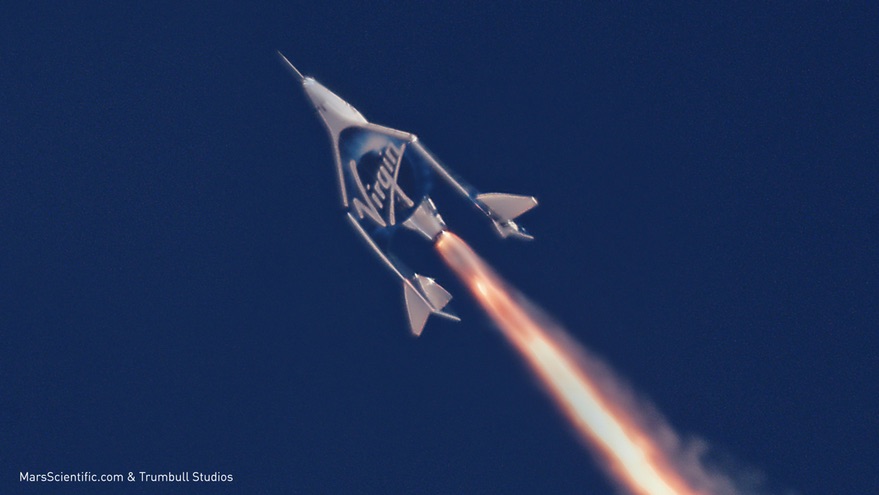WASHINGTON — The Federal Aviation Administration has granted permission to Virgin Galactic to fly customers, and not just employees, on its SpaceShipTwo suborbital vehicle, a move that could allow the company’s founder to fly to the edge of space soon.
Virgin Galactic announced June 25 that the FAA’s Office of Commercial Space Transportation had updated its existing launch license for SpaceShipTwo, allowing the company to fly spaceflight participants in addition to crew on the vehicle.
The change to the license came after a review of data from the most recent SpaceShipTwo test flight May 22, where the VSS Unity vehicle flew to an altitude of nearly 90 kilometers before landing back at Spaceport America in New Mexico. The flight cleared the final test items needed for the FAA to allow the vehicle to carry people other than company employees.
The FAA’s launch license for SpaceShipTwo, issued in 2016 and last updated nearly a year ago, limited the company to flying “non-deployed scientific, experimental, or inert payloads” on SpaceShipTwo flights. The license explicitly restricted the company from flying customers, or spaceflight participants, on the vehicle.
Virgin Galactic “must successfully verify the integrated performance of the [SpaceShipTwo/WhiteKnightTwo] vehicle hardware and any software in an operational flight environment before allowing any space flight participant on board during a flight,” the license stated. “Verification must include flight testing, and the results must be provided to the FAA prior to conducting a mission with a space flight participant on board.”
Beyond that language, the FAA is limited in overseeing the safety of spaceflight participants on commercial spacecraft. Federal law keeps the FAA from regulating spaceflight participant safety except in response to accidents, a “learning period” intended to give the industry time to develop experience upon which future regulations can be based. That learning period, enacted in 2004 for an original eight-year span, has been extended several times and now runs through September 2023.
“We’re incredibly pleased with the results of our most recent test flight, which achieved our stated flight test objectives,” Michael Colglazier, chief executive of Virgin Galactic, said in a statement. “Today’s approval by the FAA of our full commercial launch license, in conjunction with the success of our May 22 test flight, give us confidence as we proceed toward our first fully crewed test flight this summer.”
The company did not provide an update on when that “first fully crewed test flight” will take place. It is one of three flights planned through this fall, where four Virgin Galactic employees would fly in the cabin to test its features. That flight could have been done under the earlier version of the license, assuming all the people on the vehicle were company employees and thus considered flight crew.
Two other flights, though, would likely require the license change. That includes a flight that will carry company founder Richard Branson, and another commercial flight that will carry three people for the Italian Air Force.
There had been speculation that Virgin Galactic could move up the flight with Branson to be the next flight, potentially allowing it take place before Jeff Bezos, founder of Blue Origin, flies on the first crewed flight of his company’s New Shepard vehicle on July 20. The updated license would support those plans, but there’s been no other information to confirm that speculation.
